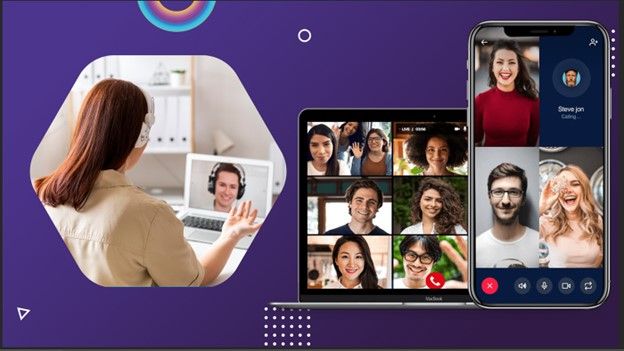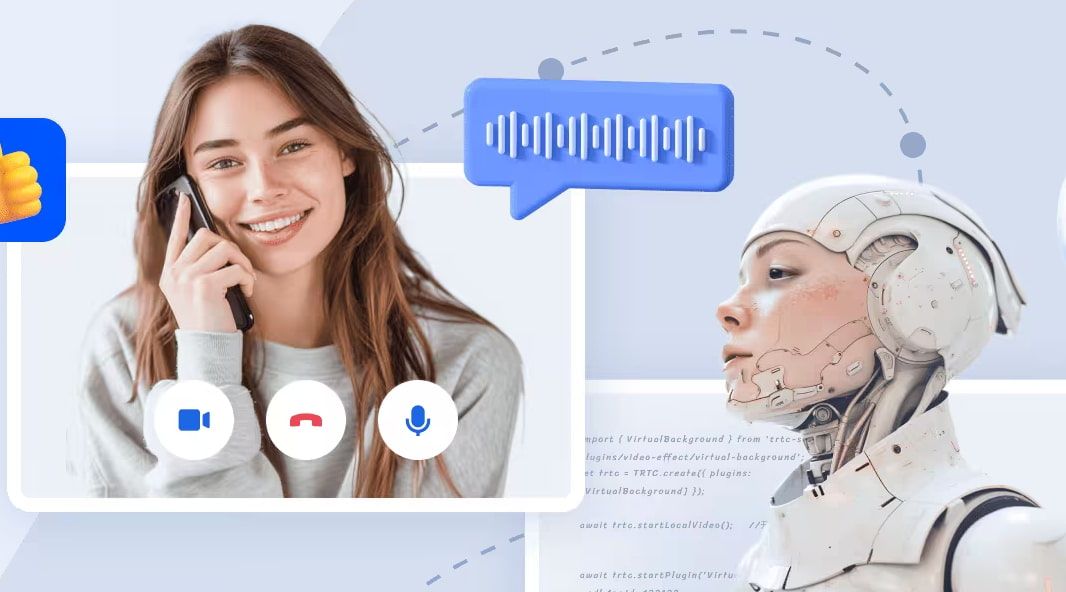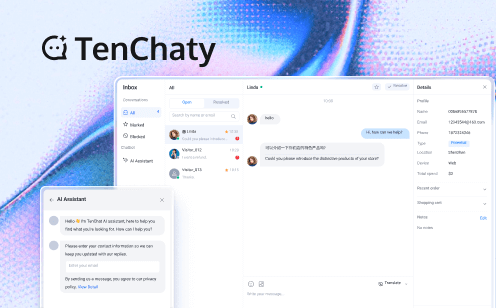What Is AI Zoom Clone and How Can It Transform Video Conferencing and Beyond?
Imagine having a virtual version of yourself that could sit in on Zoom meetings, follow discussions, and even make decisions on your behalf. Sounds like something from a sci-fi movie, right? That's "AI Zoom clone" or "digital twin", the ambitious vision shared by Zoom's founder and CEO Eric Yuan recently in a viral interview.
But is this vision realistic, and what about the ethics of AI mimicking human presence in the workplace? To dig deeper, let's talk about how Zoom AI clones could work, their potential for our everyday tasks and businesses, and the ethical considerations that come with them.

What Are Zoom AI Clones?
Imagine being able to skip those back-to-back meetings on Zoom while your AI clone handles it all for you. That's the vision Zoom CEO Eric Yuan has for the future of work.
In a recent interview with The Verge's Decoder podcast that went viral, Yuan shared his excitement about creating Zoom AI clones or "digital twins", which are essentially your deepfake avatars powered by AI that would attend meetings, manage emails, and even make decisions on your behalf. His goal? To help you reclaim your time and make your workweek shorter and more efficient.
So, how will these Zoom AI clones meetings work exactly?
- Train Your Own LLM: To create a Zoom AI clone, Yuan believes we need to first be able to train our own, highly customized LLM (large language model). You provide AI with data such as your voice recordings, videos, and written content. AI uses this information to analyze your knowledge base, communication style, tone, and mannerisms, so they can accurately mimic how you think, speak and behave.
- Create Your Virtual 3D Avatar: Next, your personal LLM will be paired with a 3D avatar that can exist in virtual environments, like those supported by Vision Pro or Meta Quest 3. In this stage, your AI clone would resemble you in a more lifelike, visual way, allowing it to engage in more realistic interactions in virtual spaces.
- Customize Multiple AI Clones for Different Roles: Another exciting feature Yuan envisions is the ability to create specialized versions of your digital twin tailored to specific tasks or roles. For instance, you could have one clone with a background in sales to handle client meetings, while another clone could be an expert in engineering to address technical discussions.
- Free You for In-Person Interactions: Ultimately, the goal is to create highly realistic, 3D versions of you. These advanced clones could handle up to 90% of virtual tasks, including complex conversations and high-stakes presentations, on your behalf, giving you more time for creative projects, family, and meaningful in-person connections.
Benefits of AI Clones for Businesses
While Yuan's vision may seem far-fetched, AI clones are already transforming how businesses operate and helping us improve productivity. Let's look at how AI clones could make a difference in your workplace:
Boost Productivity
AI clones are already freeing us from repetitive everyday tasks and boosting efficiency. Let's take Zoom's answer to AI clone for now, the Zoom AI Companion, as an example. Zoom AI Companion is an integrated assistant within the platform to help you streamline workflows and improve collaboration.
It can generate quick meeting summaries, offer real-time assistance during calls, draft emails and chat messages, summarize threads and documents, and even spark new ideas on the Zoom Whiteboard. This not just saves you time but also enhances how your team connects and gets work done.
Improve Customer Service
AI clones can transform customer service by creating more engaging, real-time interactions. Using Tencent RTC's conversational AI SDK as an example, businesses can integrate AI-powered assistants capable of handling customer inquiries with a human-like presence, anytime and anywhere.

With Tencent RTC's real-time interaction tools, you can empower your AI clones to communicate directly with customers through voice and video. This means AI can provide quick, natural responses that sound like a live agent, which makes for a friendlier, more responsive experience for your customers 24/7.
Beyond simple responses, Tencent RTC's call and conference SDKs with LLM + RAG integration allow your AI clone to manage more complex scenarios like e-commerce support and customer feedback, ensuring that customers feel heard and attended to without delay.
Enhance the Decision-Making Process
Decision-making is key to business success, and AI clones can help with that. AI clones can examine enormous datasets quickly and accurately using complex algorithms, discovering trends, correlations, and patterns that can be used to make decisions. This increases the chances of success, reduces risk, and fosters growth and innovation within the organization.
Scalability at Your Fingertips
As your business grows, so does the demand for customer support, marketing outreach, and operational efficiency. With AI clones, scaling up doesn't mean adding more staff or compromising on quality. Your AI clone can handle an increasing workload seamlessly, making it easier to grow your business without a hitch.
How Could AI Clones Transform the Future?
As we've seen, AI clones have the potential to completely reshape how we work, communicate, and even create in the future. Here's how they could transform what's possible:
Boosting Workplace Productivity
Picture a workplace where repetitive tasks no longer drain your time. AI clones could take over routine work—such as data entry, scheduling, or basic customer service—freeing you to dive into more creative and strategic roles. This shift can make your workday more fulfilling, with more time dedicated to tasks that truly inspire you.
Improving Efficiency in Healthcare
In the healthcare industry, AI clones could assist doctors by delivering accurate diagnoses, analyzing complex medical data, and suggesting treatments. These AI clones can improve efficiency and enhance patient care by reducing the workload of healthcare staff, allowing medical professionals to focus on more critical aspects of patient treatment and support.
Providing Personalized Teaching in Education
AI clones can enhance education by offering personalized teaching and support. They adapt to each student's learning pace and style, making lessons more effective. By providing customized guidance, AI clones improve accessibility and engagement, helping students achieve their academic goals more easily.
Ethical Concerns Surrounding AI Clones
While AI clones bring exciting possibilities, it's essential to consider the ethical concerns that come with them. Here are some of the key areas to think about:
Privacy and Data Security
Creating an AI clone requires a lot of personal data, from voice recordings to behavioral patterns. This raises questions about how this data is stored, protected, and used. You'll want to ensure that any data shared is handled securely to prevent misuse or unauthorized access.
Consent and Autonomy
There's also the issue of consent. If your AI clone interacts with others on your behalf, it's essential that people know and agree to engage with a digital version of you. Additionally, keeping control over your clone's actions and responses is critical; you don't want an AI representation acting outside of your intended behaviors or messaging.
Job Displacement and Economic Impact
As AI clones become more advanced, they may take over roles traditionally held by people, particularly in customer service and administrative tasks. While they offer efficiency, it's worth considering how this shift might impact employment and what role businesses can play in supporting employees through these transitions.
Misuse and Impersonation
Another ethical concern with AI clones is the proliferation of deepfakes, which have the potential to facilitate fraud and scams. Digital criminals can use AI clones to mimic people, mislead others, and commit crimes such as financial fraud and information theft. The exploitation of AI enables fraudsters to manipulate victims and poses serious threats to security and privacy.
Conclusion
As you can see, the AI Zoom clone is essentially Zoom's vision to create digital twin avatars to attend virtual meetings on your behalf. But it shows the potential to change the way businesses operate by making them more efficient, automating tasks, and improving collaboration. As artificial intelligence progresses, these AI clones will transform fields such as healthcare and education, as well as the way people work and interact.
However, this also brings ethical challenges like job displacement, privacy concerns, and the misuse of AI clones for fraud. We must address these issues to ensure that AI clones are developed and used responsibly for everyone's benefit.
FAQs
How much does Zoom AI cost?
You don't need to pay extra to use the AI Companion or digital assistant in Zoom if you already have a paid Zoom account. This is included with paid plans, so you can use the Zoom AI Companion to upskill, boost productivity, and improve team performance without extra cost.
Which Zoom CEO wants to use AI to create digital clones that can attend meetings for you?
Zoom CEO Eric Yuan wants to use AI to create "digital clones" or "digital twins" that can attend meetings for you. This will make virtual communication more streamlined and productive by allowing AI to attend meetings on your behalf, make decisions, and interact as needed.
What is AI Companion in Zoom?
The Zoom AI Companion is a generative AI assistant that enhances productivity and teamwork. It can generate ideas on notepads, create meeting summaries in real time, summarize emails, and much more.
If you have any questions or need assistance online, our support team is always ready to help. Please feel free to Contact us or join us on Telegram or Discord.


